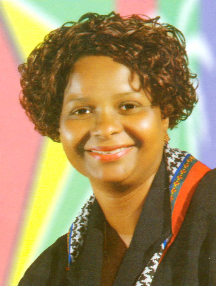Two weeks of debate on the 2011 National Budget and consideration of estimates in the Committee of Supply of the National Assembly concluded yesterday with the House passing the Appropriation Bill 2010, giving the go-ahead for public spending this year.
The bill covers a gross sum of $146,879,654,000 ($146.8 billion), which will be taken from the Consolidated Fund for local expenditure for the fiscal year ending December 31, 2011, in accordance with Article 218 of the Constitution and Section 17 of the Fiscal Management and Accountability Act 2003. Three Mondays ago, Finance Minister Dr Ashni Singh announced a $161.4 billion budget.

The House yesterday also passed the Fiscal Enactments (Amendment) Bill 2011, which paves the way for the personal income tax threshold to be raised to $480,000 from $420,000. The bill also caters for the reduction of corporate tax (for commercial companies other than telephone companies) to 40 per cent and for all other companies to pay corporate tax of 30 per cent of their chargeable profits.
PNCR-1G Shadow Finance Minister Volda Lawrence indicated her party’s support of the bill, while saying that all Guyanese must be beneficiaries of all economic gains accrued. “Sir, we welcome the increase in the personal income tax threshold… However, it must be reiterated that we would have been happier to see the personal tax threshold brought down to the same 30 percent as the non-commercial companies,” Lawrence said.
Lawrence said too that “this is the first time in Guyana that the basic personal tax rate is higher than any corporate tax rate.” She said the party firmly believed that no worker should be earning less than $40,000 per month and that the personal tax rate should not be more than the corporate tax rate. Lawrence called for the finance minister to tell the National Assembly about the government’s plan to have a comprehensive tax reform. She also said that her party would like to see the issue of indexing of the personal tax rate being considered. “And we, Sir, cannot continue with the lower salaried worker paying the same 33 1/3 per cent as that of the highest salaried worker,” Lawrence said.
She also supported the reduction in the corporate tax rate. “We, however, feel, Sir, that since the rate of corporation tax for commercial companies has been reduced, so must the minimum corporate tax rate, which is presently, I think, about 2 per cent. And we feel perhaps it should be reduced to 1.75 per cent,” she said.
Singh, in response said, that the intervention at the level of corporate tax was “a worker friendly intervention.” He said that ultimately the adjustment in corporate tax would impact on the environment of the worker.
The House also adopted the Confirmation of the Customs Duties (Amendment) Order 2011, which Dr Singh explained made Guyana the first Caricom country to have taken the necessary legislative steps to implement the Economic Partnership Agreement (EPA) with the European Union.





